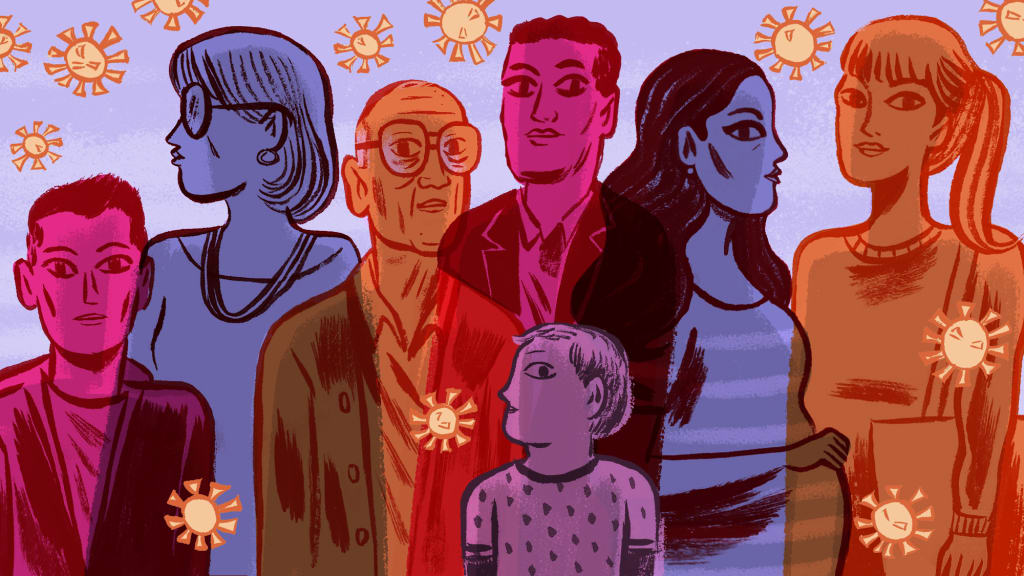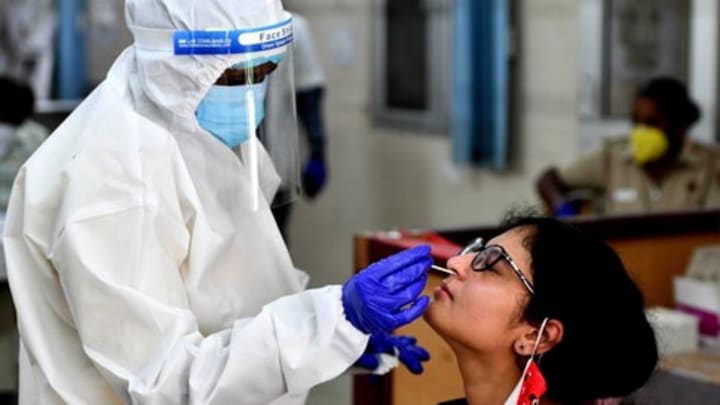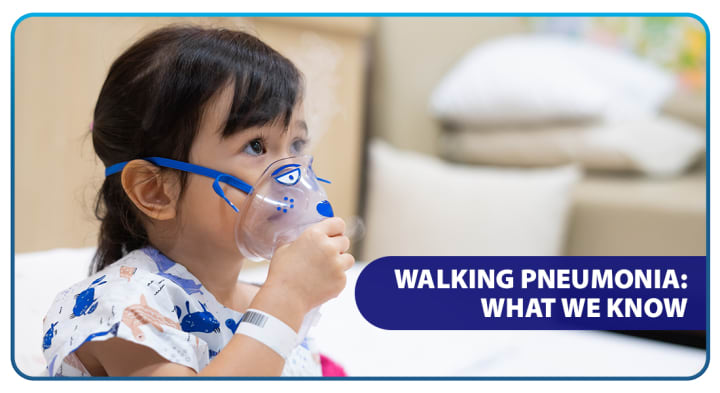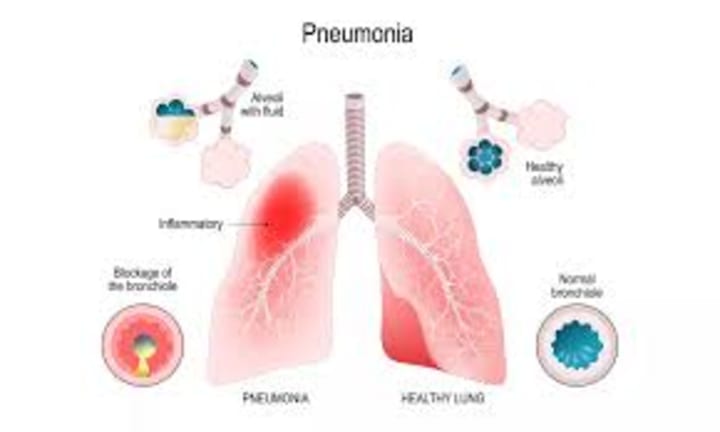Content warning
This story may contain sensitive material or discuss topics that some readers may find distressing. Reader discretion is advised. The views and opinions expressed in this story are those of the author and do not necessarily reflect the official policy or position of Vocal.
What Happens If You Get Covid-19?
Corona Virus in your body.

This passage provides a comprehensive explanation of how the coronavirus (referred to here as "Tsar's Cove") infects the body and causes illness, and how a vaccine could work against it. Here’s a summary and breakdown of the key points:

1. Coronavirus Overview:
- The coronavirus, named for its crown-like spikes, causes COVID-19, a viral infection that primarily attacks the throat and lungs.
- The virus infects living cells to reproduce, utilizing its genetic material to make more copies of itself.
2. Mechanism of Infection:
- The virus has a protein shell protecting its genetic material and an outer envelope with protein spikes that help it merge with host cells.
- Upon entering the body through droplets (from talking, coughing, or sneezing), the virus attaches to receptors on cells in the throat, nose, or lungs.
3. Cellular Invasion and Reproduction:
- Unlike typical influenza viruses, coronaviruses can access the host cell’s ribosomes directly, bypassing the nucleus, to produce viral proteins.
- New viruses are assembled and bud off from the host cell, ready to infect more cells.
4. Development of Pneumonia:
- The virus can cause inflammation in the bronchioles and alveoli (air sacs in the lungs), leading to pneumonia.
- Inflamed alveoli can fill with fluid, making it difficult to breathe and preventing adequate oxygen exchange.
5. Symptoms and Complications:
- Symptoms of pneumonia include difficulty breathing, chest pain, coughing, fever, and fatigue. Severe cases may require a ventilator for breathing support.
- The severity of symptoms depends on various factors like age and pre-existing conditions.
6. Vaccine Development:
- A vaccine aims to introduce a weakened version of the virus to stimulate the immune system to produce antibodies without causing illness.
- Antibodies specifically targeting the coronavirus spike protein can prevent the virus from entering cells.
- Developing a vaccine involves extensive testing to ensure it is safe and effective, a process that typically takes years but is being expedited due to the pandemic.
7. Preventive Measures:
- To protect vulnerable populations and prevent the spread of the virus, it’s crucial to stay home, practice social distancing, and wash hands frequently.
This detailed explanation highlights the importance of understanding how the virus operates, the body's response, and the efforts involved in creating a vaccine to combat COVID-19.

Ribosomes use genetic information from the virus to make viral proteins, like the spikes on the virus's surface. A packaging structure in your cell carries the spikes in vesicles, which merge with your cell's outer layer, the cell membrane.
All the parts needed to create a new virus gather just beneath your cell's membrane. Then, a new virus begins to bud off from the cell's membrane. Now, with the virus spreading in your body, you can develop pneumonia symptoms.
To understand this better, let's look into your lungs. Each lung has separate lobes. When you breathe, air moves through your trachea, bronchioles, and alveoli. Normally, your Airways and alveoli are flexible and springy. They allow for oxygen to enter your capillaries and carbon dioxide to leave them. In a healthy body, germs are caught in mucus in your Airways and are pushed out by cilia. However, if your immune system is weakened, like in a coronavirus infection, the virus can overwhelm your immune cells.

This can lead to inflammation in your bronchioles and alveoli, causing fluid to fill your alveoli and making it difficult for your body to get the oxygen it needs. This can result in pneumonia symptoms such as difficulty breathing, chest pain, coughing, fever, and more. It is important to stay safe and follow hygiene practices to protect yourself and others during this pandemic.

Preventing pneumonia, especially in the context of viral infections like COVID-19, involves several strategies aimed at reducing the risk of infection and maintaining overall health. Here are key measures to prevent pneumonia:
1. *Vaccination:
- Pneumococcal Vaccine: Protects against Streptococcus pneumoniae, a common cause of bacterial pneumonia.
- Influenza Vaccine* Reduces the risk of flu, which can lead to pneumonia as a complication.
- COVID-19 Vaccine: Protects against COVID-19, which can cause severe pneumonia.
2. Good Hygiene Practices:
- Hand Washing: Wash hands frequently with soap and water for at least 20 seconds, especially before eating, after using the bathroom, and after coughing or sneezing.
- Use Hand Sanitizer: When soap and water are not available, use an alcohol-based hand sanitizer.
- Avoid Touching Face: Avoid touching your face, especially the eyes, nose, and mouth, to prevent the introduction of germs.
3. Respiratory Etiquette:
- Cover Coughs and Sneezes: Use a tissue or your elbow to cover your mouth and nose when you cough or sneeze. Dispose of tissues properly and wash hands immediately.
- Wear Masks: In situations where respiratory infections are prevalent, wearing masks can help prevent the spread of germs.
4. Healthy Lifestyle:
- Healthy Diet: Eat a balanced diet rich in fruits, vegetables, and whole grains to boost your immune system.
- Regular Exercise: Engage in regular physical activity to maintain overall health and immune function.
- Adequate Sleep: Ensure you get enough rest, as sleep is crucial for a strong immune system.
- Avoid Smoking: Smoking damages the lungs and increases the risk of respiratory infections, including pneumonia.
5. Environmental Measures:
- Clean and Disinfect: Regularly clean and disinfect frequently touched surfaces, such as doorknobs, light switches, and mobile devices.
- Good Ventilation: Ensure good airflow in indoor spaces to reduce the concentration of airborne pathogens.
6. Managing Underlying Conditions:
- Chronic Conditions: Manage chronic conditions such as diabetes, asthma, and heart disease effectively, as these can increase the risk of pneumonia.
- Medical Check-ups: Regular medical check-ups can help detect and manage health issues before they lead to complications like pneumonia.
7. Prompt Medical Attention:
- Seek Early Treatment: If you have symptoms of respiratory infection (fever, cough, difficulty breathing), seek medical attention promptly to prevent complications.
- Follow Medical
About the Creator
Remielyn Gracias
✨Make my own world✨
Enjoyed the story? Support the Creator.
Subscribe for free to receive all their stories in your feed. You could also pledge your support or give them a one-off tip, letting them know you appreciate their work.






Comments (2)
Really helpful and informative article!
Although I worked where there were lots of people, I never got the virus. But I got the vaccine which can be just as bad as the virus. I still have problems from getting the vaccine alone. Very informative article.